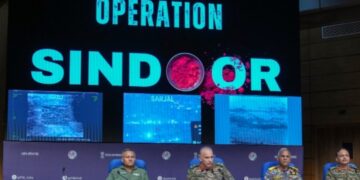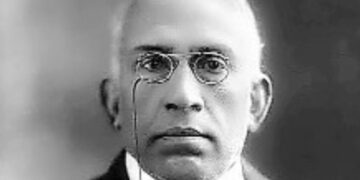The Supreme Court of Bharat on Monday upheld the Central government’s decision to abrogate the Article 370 of the Constitution which gave special status to Jammu and Kashmir. The five-judge bench consisting of CJI DY Chandrachud and Justices S K Kaul, Sanjeev Khanna, BR Gavai and Surya Kant urged to restore the statehood in Jammu and Kashmir soon and instructed the Election Commission of India to hold elections in J&K by September 2024.
The five-judge bench stated that every decision taken by the Centre on behalf of the state cannot be a subject to legal challenge. Reading out the verdict, CJI stated that J&K held no internal sovereignty after its accession to Bharat, neither were there any prima facie case that President’s orders were mala fide or an extraneous exercise of power. Adding that the reorganisation of the erstwhile state into Union Territories in 2019 was a temporary move, the apex court directed Centre to restore complete statehood in J&K. The CJI also held that all provisions of the Constitution of India can be applied, and there will be no internal sovereignty for J&K.
Verdicts on Article 370
The Justices also read out their separate verdicts. Let’s have a look.
Justice Sanjeev Khanna said that Article 370 is an example of asymmetric federalism and not indicative of the sovereignty of J&K, adding that the abrogation of the Article 370 does not erode federalism.
On the other hand, Justice SK Kaul in his verdict recommended setting up of a Truth and Reconciliation Commission which will help in looking into violations of human rights by both state and non-state actors in J&K. The purpose of the J&K Constitution was to ensure everyday governance in the state and the purpose of Article 370 was to integrate the state with India, Justice Kaul stated.
What Was Article 370 and Its Abrogation?
The Article 370 of the Constitution granted special autonomy to Jammu and Kashmir, curtailing the central government’s legislative authority over the state. The now-revoked Article 370 allowed J&K to formulate its own law, with exemption in areas like finance, defence, foreign affairs, and communications. In 1954, an Article 35A was introduced within Article 370 that empowered the J&K government to define permanent residents. The Article 35A also prohibited individuals outside the state from establishing permanent residence, buying land, or holding certain positions in government offices.
Following the abrogation of Article 370 on August 5, 2019, J&K was split into two union territories- Jammu and Kashmir (with a legislative body) and Ladakh (without a legislative body).
Since the abrogation of the Article 370, the socio-political landscape of the region has changed extensively over the past four years, while there are almost zero incidents of stone pelting, the clonstruction of infrastructures has paced up, and various governmental schemes have also been introduced. In fact, since the abrogation of Article 370, more than 2 crore tourist have visited Jammu and Kashmir during this year and during the G20 Presidency of Bharat, a large number of tourists have arrived in J&K, which has happened for the first time since Bharat gained independence.
















Comments